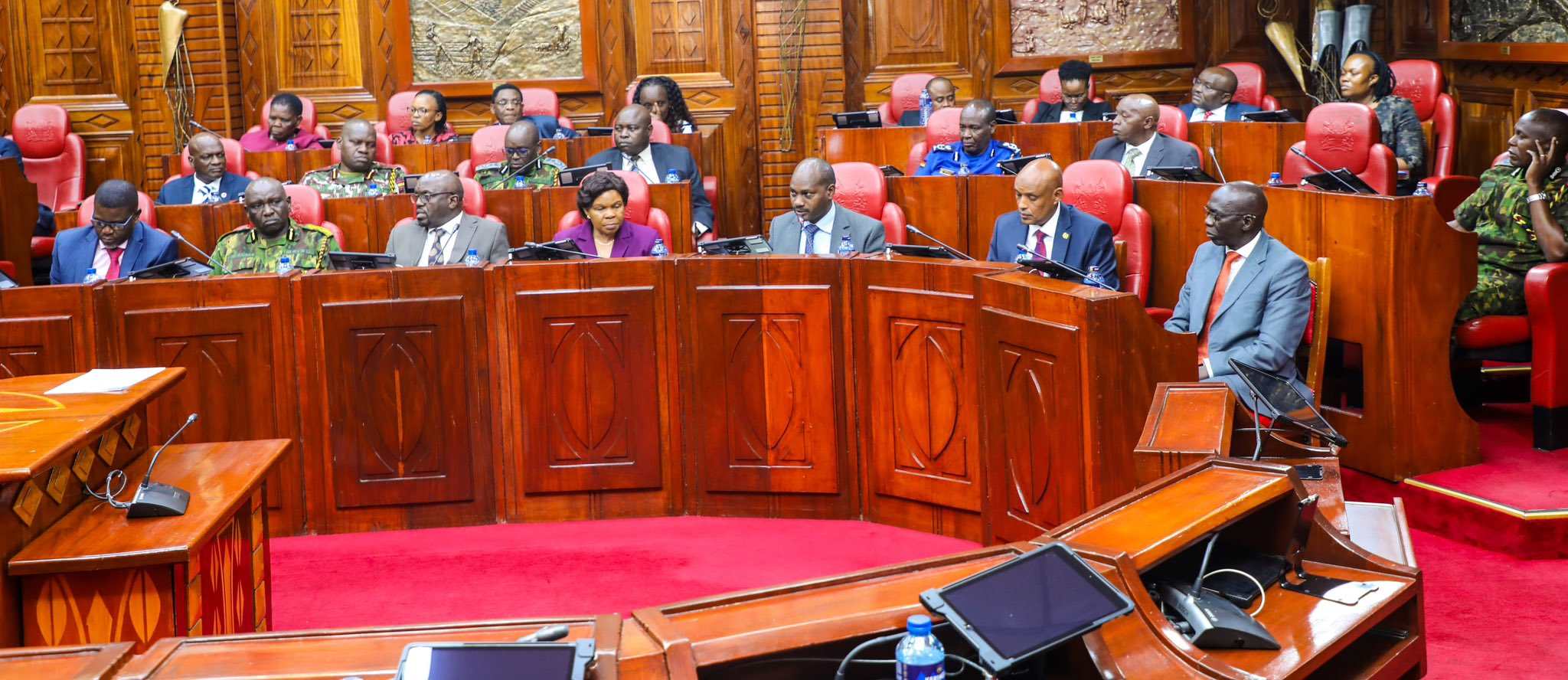Parliament has raised concerns over growing friction between the National Police Service (NPS) and the National Police Service Commission (NPSC), warning that the ongoing power struggle risks undermining the cohesion and performance of the police.
During a sitting on Tuesday, the Committee on Implementation of the Constitution, chaired by Caroli Omondi, pointed to conflicting constitutional provisions as the source of the dispute, particularly Articles 245 and 246.
Legislators said the two articles give overlapping responsibilities to the Inspector General (IG) and the Commission, creating uncertainty that has fueled constant clashes.
“Much of this tension is rooted in Articles 245 and 246 of the Constitution, which outline separate but overlapping responsibilities for the IG and the Commission,” the committee said.
Article 245 assigns the IG command over the police, including implementing policy, overseeing operations across the country and deploying officers below the rank of Superintendent.
On the other hand, Article 246 gives the NPSC authority over human resource functions such as recruitment, appointments, promotions, transfers, disciplinary control and supervision of training standards.
The Committee noted that the latest conflict arose over funding for police recruitment. The NPSC protested that recruitment budgets were being channelled to the NPS, bypassing its independent mandate.
A key sticking point, the Committee added, remains control of the police payroll.
“Control of payroll and other overlapping human resource functions remains a key flashpoint. The Commission insists payroll management squarely falls within its constitutional mandate, while the IG maintains that relinquishing this function would erode his authority over police operations,” the committee explained.
Lawmakers cautioned that failure to resolve the conflict could weaken the unity of the police service and compromise public trust. They resolved to seek further consultations with stakeholders before making recommendations to the House on a way forward.
Meanwhile, the standoff has extended to the courts.
On August 11, 2025, a public interest group through lawyer Shadrack Wambui filed an urgent application seeking to suspend the planned recruitment of 10,000 police officers.
The petition argues that the recruitment exercise is linked to the disputed payroll system and should not proceed until the constitutional question is resolved.
The court directed on August 13 that the petition be served within three days and responses filed within seven. However, the petitioners said that despite serving all respondents, no replies had been filed, leaving the matter uncontested.
“Allowing recruitment to proceed before the constitutional issue is resolved would lead to payroll entries for 10,000 new officers being made under disputed authority, potentially rendering the petition meaningless if the court rules in our favour,” the petitioners argued.
They described payroll management as the “primary instrument” for carrying out human resource decisions such as recruitment, transfers, promotions, suspensions and disciplinary measures.
Any uncertainty over its control, they said, risks destabilising the police and damaging public confidence.
Despite the pending case, the NPSC has pressed on with preparations. On September 5, the Commission adopted the National Police Service Commission (Recruitment and Appointment) Regulations, 2025, during a meeting held in Mombasa, signaling its intention to proceed with the exercise.

